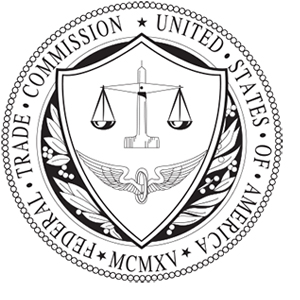Who are the Federal Trade Commission?
Established in 1914, the Federal Trade Commission (FTC) is one of the oldest independent agencies of the US government.
Its main responsibilities are to protect consumers and uphold their civil rights, which it achieves through upholding the various antitrust (i.e. non-criminal) laws that are available to it.
It was the passing of the Federal Trade Commission Act over a century ago that made the FTC a necessary body in upholding the laws set out in the various statutes, and today it shares jurisdiction over the enforcement of the Act in conjunction with the US Department of Justice and its Antitrust Division.
In the financial services and products sector, the FTC protects customers and investors against fraudulent or unfair behaviour from brokers and exchanges, while helping to regulate the industry and ensure that it remains competitive and free of monopoly.
The FTC has a number of different bureaus, whose job is to preserve integrity in a number of key areas. The Bureau of Consumer Protection, the Bureau of Competition, and the Bureau of Economics all focus on the areas that their names suggest.
Regulatory areas and powers
There are two strings to the FTC’s bow: action and prevention.
The FTC has the power to enforce a number of different federal consumer protection laws – it has a suite of more than 70 at its disposal, including the Federal Trade Commission Act and the Clayton Act. These largely pertain to fraud and deception, targeting businesses and brokers that act in an unfair way.
Another important aspect of its work is maintaining the competitiveness of a sector – this helps to ensure that consumers get better standards of service and the appropriate levels of pricing (key in the financial services industry), and it also prevents brands from colluding to boost their profitability.
As far as prevention is concerned, the FTC pools its knowledge and resources with a variety of government offices to help ensure that federal and state legislature is protecting the interests of the consumer and assisting in the creation of competitive industries.
How to check if a broker is regulated by the Federal Trade Commission
All brokers that operate on US soil – or that offer their products/services to an American clientele – are regulated by the FTC.
There isn’t a register or anything like that because all US-facing businesses fall under the remit of the FTC, and as such the organisation can use the full weight of its powers against any broker that it believes is acting in a way that does not protect the integrity of the consumer.
For those who are interested in discovering the businesses that are being, or have been, investigated by the FTC, it is possible to view the current list of proceedings by visiting
https://www.ftc.gov/enforcement/cases-proceedings.
Making a complaint
The Federal Trade Commission has built its own sub-website specifically designed to provide all the information needed about making a complaint against a broker – this can be found here: https://www.ftccomplaintassistant.gov/.
It is possible to browse the sub-categories that the FTC has listed on the site and then fill in an online complaint form pertaining to the individual circumstances.
On the main FTC website, the online complaint form can be filled in at https://www.ftc.gov/faq/consumer-protection/submit-consumer-complaint-ftc. This offers lots of handy information and a quick video that reveals the necessary information about the complaints process.
Those who have information about a specific antitrust violation can post this at https://www.ftc.gov/faq/competition/report-antitrust-violation.
